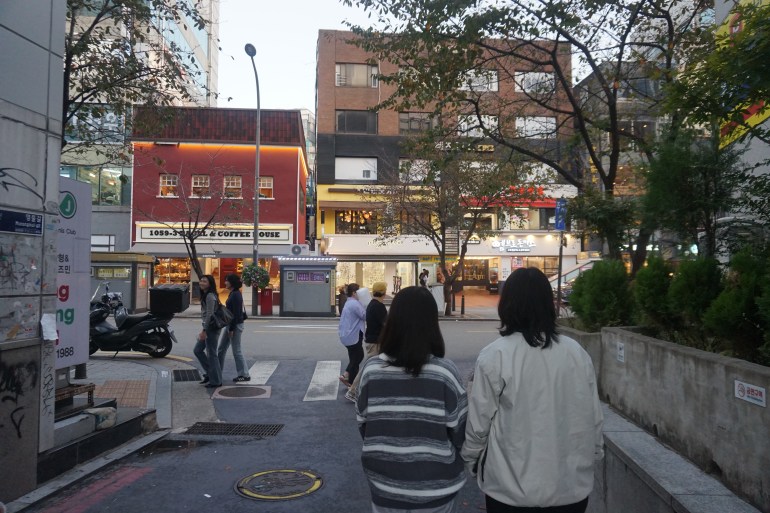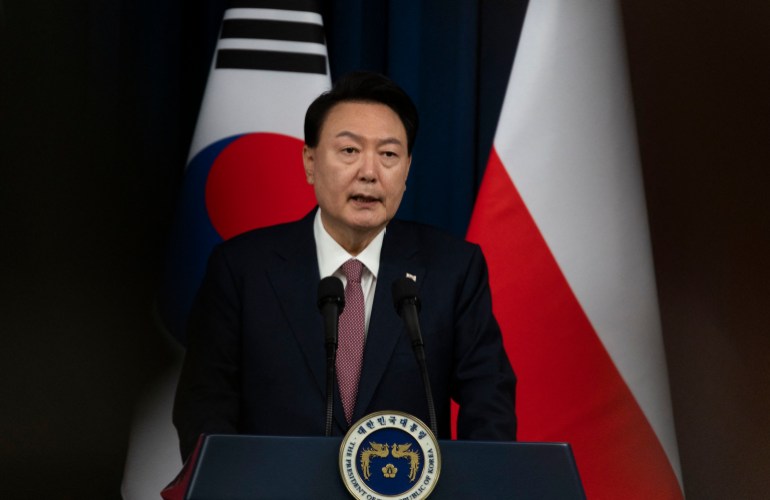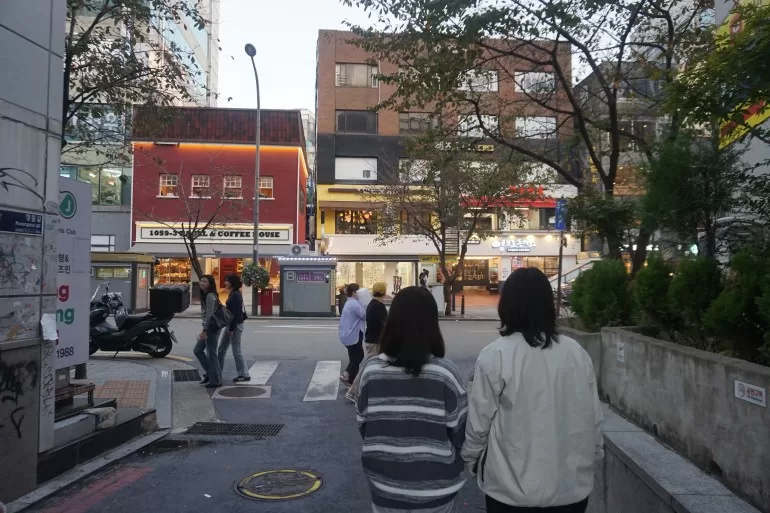Seoul, South Korea – When Yang Seung-ji heard that thousands of North Korean soldiers had been sent to Russia for possible deployment in Ukraine, she began searching online for the nearest emergency shelter.
Yang is concerned that tensions between North and South Korea, which have been aggravated by Pyongyang’s reported involvement in the war in Ukraine, could spill over into an armed confrontation.
“I worried that public transportation would be down and make me unable to go back home,” the 25-year-old job seeker, who recently moved from the regional city of Chungju to Seoul, about 50 km (30 miles) from the inter-Korean border, told Al Jazeera.
“We thought about packing our stuff and stacking some food in our apartment.”
“Ever since hearing about North Korea’s balloons carrying rubbish landing in parts of Seoul, there’s just a sense that things are escalating,” Yang added.

The United States Department of Defense said last week that up to 10,000 North Korean soldiers are undergoing training in Russia as Moscow looks to reinforce its troop strength in the nearly three-year-long war, corroborating earlier statements by Ukrainian and South Korean intelligence.
For South Korea, the cooperation has raised fears North Korea could receive nuclear technology from Russia as compensation.
On Thursday, North Korea test-launched a new solid-fuel intercontinental ballistic missile dubbed Hwasong-19, which logged a record flight time of 86 minutes.
South Korean President Yoon Suk Yeol has pledged to respond to North Korea’s involvement in Ukraine, including by potentially supplying weapons to Kyiv.
“If North Korea dispatches special forces to the Ukraine war as part of Russia-North Korea cooperation, we will support Ukraine in stages and also review and implement measures necessary for security on the Korean Peninsula,” Yoon said last week during a joint news conference with Polish President Andrzej Duda.
Directly supplying weapons to Ukraine would mark a significant change in South Korea’s involvement in the war, which has so far been confined to humanitarian aid and helping backfill weapons by supplying arms to NATO members.
Such a move would also require revisions to South Korea’s Foreign Trade Act, which prohibits the country from sending lethal weapons to live conflict zones except for peaceful uses.
Since the division of the Korean Peninsula following the end of the 1950-53 Korean War, South Korea has focused heavily on diplomacy to forge the trade relationships that drive its export-driven economy.
During its rapid transformation into one of the world’s most developed economies during the 1960s and 1970s, the country honed its soft power, including cultural exports such as K-pop and Korean film, to exert influence.
Its military involvement overseas, such as in the US-led wars in Iraq and Afghanistan, has been mostly confined to small deployments of troops in noncombat roles.
“As a country that has been able to manage decades of relative stability without involvement in any direct warfare, it goes against the tendencies of our society and the government’s policies to jump into a war,” Son Key-young, a professor of international relations at Korea University, told Al Jazeera.
“Even looking at the outlier instance, which was the Vietnam War, South Korea sent a significant amount of troops only because we didn’t want US forces in South Korea leaving their bases.”
Between 1964 and 1973, South Korea deployed about 320,000 soldiers to Vietnam to fight alongside the US army in exchange for US aid to revive the then-ailing economy.
“Hearing from my students, it’s quite obvious how young people are against being involved in the Russia-Ukraine War. And the slow state of the economy is likely to make other South Korean citizens frown upon the idea as well,” Son said.
“South Korea’s role in this conflict looks to be very limited, but President Yoon seems to be searching for a way to be involved as his administration has shown to be active in national security issues.”

Han Jun-seo, a 27-year-old advertising professional, said he would support South Korea sending weapons to Ukraine, but only if the government could do so without “catching too much attention”.
“One thing that does worry me is that North Korean troops will get real field experience while the last time our troops got any live experience was in Vietnam,” Han told Al Jazeera.
Park J. R., an office worker in Seoul, said South Korea should only take action in Ukraine in cooperation with the international community and the United Nations.
“Russia won’t remain our enemies forever, so we don’t want to damage relations for good. Acting by ourselves and making hasty decisions is a fast lane to being used,” Park, 54, told Al Jazeera.
Park also said he was uncertain about North Korea’s true motives.
“I don’t know if North Korea is doing this as a form of aggression towards our country or if they want to just strengthen their alliance with Russia. Either way, both scenarios don’t look good for us,” he said.
For some older South Koreans, who grew up when military clashes between the Koreas were a more regular occurrence, it is crucial not to show weakness to the North.
“I don’t think it’s right for South Korea to be overly conscious about North Korea when we make these decisions,” Kim Shin-gyu, a 65-year-old apartment complex janitor, told Al Jazeera.
“If the situation calls for it, we should be able to confidently make our own decisions.”
Taking a break from a game of janggi, a board game sometimes compared to chess, at Seoul’s Tapgol Park, Oh R. M. said South Korea should learn to fight fire with fire.
“If our country also had nuclear weapons, the north wouldn’t be able to put fear in us all the time,” Oh, 68, told Al Jazeera.
“If we become capable of defending our country from outside threats first, why not send weapons or provide some reinforcing troops?”
